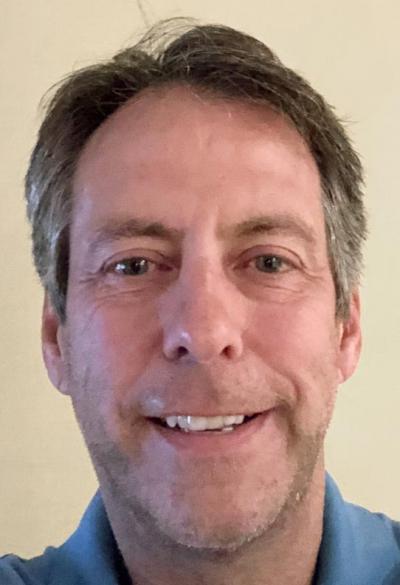

 As widely reported, and not surprising, the internet is swimming in COVID-19 online scams. Criminals, accustomed to rapidly grabbing online territory during times of crisis and profiting from public fear, are working overtime in the face of the coronavirus. Unfortunately, ICANN's failure to enforce its minimal WHOIS and DNS abuse requirements has resulted in delayed mitigation efforts at a time when swift responses are needed to protect the public from COVID-19 scams. more
As widely reported, and not surprising, the internet is swimming in COVID-19 online scams. Criminals, accustomed to rapidly grabbing online territory during times of crisis and profiting from public fear, are working overtime in the face of the coronavirus. Unfortunately, ICANN's failure to enforce its minimal WHOIS and DNS abuse requirements has resulted in delayed mitigation efforts at a time when swift responses are needed to protect the public from COVID-19 scams. more
 This past week I had two items pop up on my alerts. The first was about Facebook suing domain registrar Namecheap for allowing domains that impersonate the social media company and can be used for scams. The second was a plea by the Electronic Frontier Foundation to join in its crusade to stop the sale of the .ORG domain. It took me a moment to realize these are linked. more
This past week I had two items pop up on my alerts. The first was about Facebook suing domain registrar Namecheap for allowing domains that impersonate the social media company and can be used for scams. The second was a plea by the Electronic Frontier Foundation to join in its crusade to stop the sale of the .ORG domain. It took me a moment to realize these are linked. more
 The Internet's users rely on domain name registration information for vital purposes, including providing security, problem-solving, and legal and social accountability. The data is so important that users perform more than two billion WHOIS queries every day. ICANN has instituted new data policies over the last two years, and is also directing a migration to a new technical protocol, RDAP, that will replace WHOIS access in the near future. So at this critical juncture, how is it all going? more
The Internet's users rely on domain name registration information for vital purposes, including providing security, problem-solving, and legal and social accountability. The data is so important that users perform more than two billion WHOIS queries every day. ICANN has instituted new data policies over the last two years, and is also directing a migration to a new technical protocol, RDAP, that will replace WHOIS access in the near future. So at this critical juncture, how is it all going? more
Internet pioneer and vice president of research at Google, Vint Cerf, said in a tweet this morning that he has tested positive for coronavirus (COVID-19). more
 I am writing to you as someone who is not your citizen, (although I had the fortune to wed the most beautiful of your daughters), to share my thoughts about the recent US Government Cyber Solarium Commission report. U.S.A. We owe you one! Without you and your citizens there would be no free Internet as we know it. Thank You! Your constitution is our inspiration. We, the global digital citizenship want to be "the people", in order to "secure the Blessings of Liberty to ourselves and our Posterity..." more
I am writing to you as someone who is not your citizen, (although I had the fortune to wed the most beautiful of your daughters), to share my thoughts about the recent US Government Cyber Solarium Commission report. U.S.A. We owe you one! Without you and your citizens there would be no free Internet as we know it. Thank You! Your constitution is our inspiration. We, the global digital citizenship want to be "the people", in order to "secure the Blessings of Liberty to ourselves and our Posterity..." more
 Early action now on possible performance issues will "flatten the curve" of customer problems in the coming weeks and months. Here are three things technology and software vendors can do right now to get ahead of problems that may appear (if they are not already) with services such as development, implementation and support... Check your contracts to see whether there are any "material assumptions" that have failed or will fail - perhaps because of some governmental action or unavailability of personnel... more
Early action now on possible performance issues will "flatten the curve" of customer problems in the coming weeks and months. Here are three things technology and software vendors can do right now to get ahead of problems that may appear (if they are not already) with services such as development, implementation and support... Check your contracts to see whether there are any "material assumptions" that have failed or will fail - perhaps because of some governmental action or unavailability of personnel... more
 One of the many consequences of the coronavirus is that networks are going to see a shift in busy hour traffic. Busy hour traffic is just what it sounds like -- it's the time of the day when a network is busiest, and network engineers design networks to accommodate the expected peak amount of bandwidth usage. Verizon reported on March 18 that in the week since people started moving to work from home that they've seen a 20% overall increase in broadband traffic. more
One of the many consequences of the coronavirus is that networks are going to see a shift in busy hour traffic. Busy hour traffic is just what it sounds like -- it's the time of the day when a network is busiest, and network engineers design networks to accommodate the expected peak amount of bandwidth usage. Verizon reported on March 18 that in the week since people started moving to work from home that they've seen a 20% overall increase in broadband traffic. more
 As we face another surge in the Delta variant within the COVID-19 pandemic, the traditional face-to-face schools of Internet Governance continue to be forced to rethink their typical programs and adapt their modalities of delivering Internet Governance education. Everyone from the administrators, educators and the participants needed to adapt to the new reality of online learning and the various digital platforms with its associated cost and benefits. more
As we face another surge in the Delta variant within the COVID-19 pandemic, the traditional face-to-face schools of Internet Governance continue to be forced to rethink their typical programs and adapt their modalities of delivering Internet Governance education. Everyone from the administrators, educators and the participants needed to adapt to the new reality of online learning and the various digital platforms with its associated cost and benefits. more
 Afnic, the French Network Information Centre and manager of the .fr TLD, has just published its Afnic's Global Domain Name Market in 2020 Report on the global domain market in 2020. The study is based on ICANN statistics, information from registries, specialized websites, and its own research. This is an overview of global trends and an analysis of the mechanisms at work during the health crisis. more
Afnic, the French Network Information Centre and manager of the .fr TLD, has just published its Afnic's Global Domain Name Market in 2020 Report on the global domain market in 2020. The study is based on ICANN statistics, information from registries, specialized websites, and its own research. This is an overview of global trends and an analysis of the mechanisms at work during the health crisis. more
 The ongoing COVID-19 pandemic has been a major contextual factor of global internet governance discussions over the past year, and it appears that discussions in ICANN are no exception. Threats to the integrity and security of the DNS have become a regular topic of debate within the ICANN community. In recent months, these discussions have increasingly focused on the idea of 'DNS abuse' and, more specifically, COVID-19-related DNS abuse. more
The ongoing COVID-19 pandemic has been a major contextual factor of global internet governance discussions over the past year, and it appears that discussions in ICANN are no exception. Threats to the integrity and security of the DNS have become a regular topic of debate within the ICANN community. In recent months, these discussions have increasingly focused on the idea of 'DNS abuse' and, more specifically, COVID-19-related DNS abuse. more
 The growth of broadband customers has looked spectacular over the past year during the pandemic. It's easy to chalk up higher broadband customers nationwide to the need for households to be connected during the pandemic. But as I look back on what's happened during the last year, I can't help but wonder if the broadband stats we are seeing are somehow overinflated. more
The growth of broadband customers has looked spectacular over the past year during the pandemic. It's easy to chalk up higher broadband customers nationwide to the need for households to be connected during the pandemic. But as I look back on what's happened during the last year, I can't help but wonder if the broadband stats we are seeing are somehow overinflated. more
ISPs in the U.S. saw a significant surge in both downstream and upstream traffic, increasing at least 30% and as much as 40% during peak business hours and as much as 60% in some markets, according to a new report from the Broadband Internet Technical Advisory Group (BITAG). more
 The Mozilla Internet Health Report is packed with interesting statistics about the state of the Internet. Reports like this one remind us that broadband is a worldwide issue that is much larger than the US broadband industry I write about every day. The report contains a lot of interesting facts: A little more than half of the planet is still not connected to the Internet. As a planet, we still have a long way to go. While the largest percentage of a region still not online is in Africa, by sheer numbers, most of those still not connected are in Asia... more
The Mozilla Internet Health Report is packed with interesting statistics about the state of the Internet. Reports like this one remind us that broadband is a worldwide issue that is much larger than the US broadband industry I write about every day. The report contains a lot of interesting facts: A little more than half of the planet is still not connected to the Internet. As a planet, we still have a long way to go. While the largest percentage of a region still not online is in Africa, by sheer numbers, most of those still not connected are in Asia... more
 This article is Part 8 of the series of articles discussing human rights in the digital age and published here on CircleID.2 When we commenced this analysis of the UDHR, and the relevance of its principles to our rights and duties within the Internet ecosystem, we committed ourselves to work through the UDHR one Article at a time. With this Part 8 we are four-fifths through that task. more
This article is Part 8 of the series of articles discussing human rights in the digital age and published here on CircleID.2 When we commenced this analysis of the UDHR, and the relevance of its principles to our rights and duties within the Internet ecosystem, we committed ourselves to work through the UDHR one Article at a time. With this Part 8 we are four-fifths through that task. more
 Last year, around the same time, the release on the same day of two flagship reports on 'the Internet' had prompted me to write an article on CircleID entitled 'Connecting the Next 46 Percent: Time to Pick the Good From the Bad and the Ugly'. I was then prudently asking whether 'the more we connect the world, the less free it becomes?'. Who would have known that a pandemic would erupt a few months later, unveiling different perspectives in assessing that very same question? more
Last year, around the same time, the release on the same day of two flagship reports on 'the Internet' had prompted me to write an article on CircleID entitled 'Connecting the Next 46 Percent: Time to Pick the Good From the Bad and the Ugly'. I was then prudently asking whether 'the more we connect the world, the less free it becomes?'. Who would have known that a pandemic would erupt a few months later, unveiling different perspectives in assessing that very same question? more